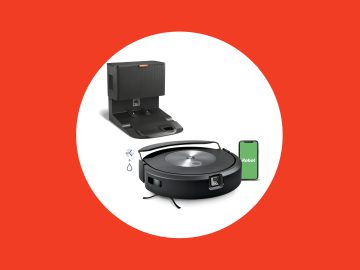NEW YORK — What makes Generation Z different from the prior generation? Unlike Millennials, who initially were labeled the “renter generation,” Gen Z is stepping into the housing market with big expectations and a unique set of needs.
Gen Z is the second largest generation of potential home buyers — 68 million strong and second only to Millennials, with slightly over 72 million — and is poised to become a significant force in the real estate market.
For real estate agents, it’s crucial to understand what sets this generation apart from the previous one, Millennials, and how you can effectively connect with and market to these emerging homebuyers.
Gen Z wants high tech and high-touch
Gen Z, defined as those born between 1997 and 2012, is the first generation to grow up with smartphones and social media from a young age. As digital natives, they expect a seamless online experience in every aspect of life, including home buying. However, unlike Millennials, who heavily gravitate toward online reviews and digital tools, Gen Z values a mix of digital convenience and real-world human interaction.
Gen Z is tech-savvy and connected, yet they prioritize authenticity and personal connections. For real estate agents, this means offering a solid online presence — think mobile-friendly websites, active social media channels, and digital communication options like text messaging and video calls — and being ready to provide personalized advice and in-person support when needed.
Research shows like most generations, most Gen Zers plan to use a real estate professional during their home purchase, but they are likely to start their home search online. They are more likely to believe that while digital tools are useful, nothing beats the expertise and accuracy of a trusted real estate agent.
Gen Z’s expectations extend beyond finding a home online. They expect technology to enhance every step in the buying journey, from virtual tours to electronic signatures. This generation appreciates — and expects — a frictionless experience. Yet, they also crave a personal connection. They don’t want to feel like just another transaction; they want to feel valued and understood. This duality requires real estate agents to be both tech-savvy and personable, blending the efficiency of technology with the warmth of human interaction.
Think location and lifestyle
While Millennials flocked to urban centers for excitement and job opportunities, Gen Z is more focused on balance, according to Realtor.com. They still value being close to work, but affordability and quality of life are equally important. This generation seeks locations that offer a mix of affordability, convenience, and lifestyle amenities.
Gen Z buyers are not necessarily looking for the trendiest neighborhood but the right neighborhood that meets their needs. Whether it’s a suburban area with good schools and parks or a city with a vibrant social scene and job opportunities, they want a place where they can maximize their lifestyle professionally and personally.
Research from Bankrate and the National Association of Realtors reveals that Gen Z values lifestyle amenities above affordability. They want to live in areas that offer social spaces like high-end bowling alleys, breweries, or co-working spaces. They are seeking environments where they can easily connect with others, both professionally and socially.
Real estate agents should highlight the lifestyle benefits of various locations, focusing on how these areas meet Gen Z buyers’ specific needs and desires. It’s not just about the house but also about the community and the life they envision living there.
Importance of trust and authenticity
Trust is a cornerstone for all real estate agents. According to a Newrez survey of 3 million customers, it is the top trait all buyers and sellers look for in an agent. The same is true for Gen Z, according to NAR’s most recent research on generational trends.
They have grown up in a world where information is readily available and are highly skeptical of anything that seems inauthentic. Unlike Millennials, who often rely on online reviews, Gen Z places more trust in referrals from friends and family. They are also more likely to rely on their own research, using the internet to verify claims and seek out the best options.
This means that traditional marketing tactics may not be as effective for real estate agents. Instead, focus on building authentic relationships with your Gen Z clients. Be transparent, offer real value, and don’t try to sell them something they don’t need.
Gen Z is particularly attuned to “being sold” and can detect a fake testimonial or contrived emotional appeal a mile away. They even use apps to detect fake reviews and social media sources filled with bot followers. Expanding your referral network is important, as word-of-mouth recommendations from trusted sources are likely to resonate more powerfully than any ad campaign.
Moreover, consider leveraging social media to resonate with Gen Z’s values. While they might not be using Facebook as an agent does, they do their research and will look at your social footprint.
This generation values equality, sustainability, and authenticity. Content that reflects these values — such as highlighting eco-friendly homes or showcasing diverse communities — can help build trust and make your brand more relatable to Gen Z buyers.
Remember, Gen Z spends a significant amount of time online, with research noting many spending over 10 hours a day connected. Your digital presence should reflect the authenticity and transparency they seek.
The Baby Boomers and Gen Z connection
A significant factor in Gen Z’s homebuying journey is the support they receive from their Baby Boomer parents. Baby Boomers, who are the wealthiest active homebuying generation, have experienced the wealth-building benefits of homeownership and are eager to help their children achieve the same.
According to an Intuit Credit Karma report, nearly 40% of Gen Z homebuyers received financial support from their parents. Moreover, 44% who don’t own a home yet will look to their Boomer parents for support. Baby Boomers will continue to financially support their Gen Z children in purchasing homes, whether through down payment help, cash gifts, or co-signing loans.
This support is crucial for Gen Z, as it helps them overcome financial hurdles that might otherwise delay their entry into homeownership.
For real estate agents, this means you may be dealing with Gen Z buyers as well as their Baby Boomer parents. Understanding the dynamics between these two generations and addressing their concerns can be crucial in successfully closing a deal. Highlight the long-term benefits of homeownership and provide options that appeal to both generations, such as homes that offer room for future growth or investment potential.
Keep in mind that Boomers are motivated to help their children become homeowners because they recognize the long-term financial benefits of owning property. Having experienced these benefits, they are keen to pass them on to their children. For Gen Z buyers, this parental support can make the difference between renting and owning, and real estate agents need to navigate this dynamic as they work with young buyers.
Overcoming the hurdles
Gen Z faces significant financial challenges that can make homeownership seem out of reach. Student loan debt, soaring housing prices, and higher interest rates are all factors.
Moreover, the difficulty of saving for a down payment remains another major hurdle, as Bankrate research points out: 40% of non-homeowners in a recent survey reported an inability to save for a down payment and closing costs, a significant barrier for this generation. Moreover, many Gen Zers are entering the workforce with lower earnings and higher living costs, making it difficult to save for a home.
However, this doesn’t mean Gen Z has given up on homeownership. Many are finding creative ways to overcome these challenges. Some move back in with their parents to save money, while others work side hustles to boost their income. According to Bankrate, 53% of Gen Zers are working a side hustle to help with earnings and savings.
As a real estate agent, understanding these challenges and offering solutions — such as suggesting first-time homebuyer programs, sharing low down payment options like those from Down Payment Resource, or finding homes in more affordable areas — can help you connect with and assist Gen Z buyers.
Generation Z will foster a new era in homebuying
To succeed with this generation, real estate agents must blend digital innovation with genuine human connection, all while navigating the financial realities that Gen Z faces. By understanding their unique needs, leveraging the support of Boomers, and offering tailored solutions, agents can help Gen Z achieve their dream of homeownership and build a lasting relationship beyond their first transaction. In doing so, you’ll close deals and open doors to future business — and referrals.
Finally, keep in mind that Gen Z are digital natives, meaning they are highly tech savvy, having used technology nearly all their lives. So, if you ever have challenges with the technology you need to connect with this generation, reach out to the Tech Helpline. Friendly tech support is available to help you solve your tech issues.
Source: Tech HelpLine
© 2024 Florida Realtors




